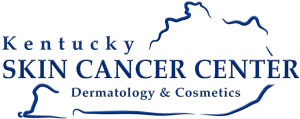Skin cancer, the most common type of cancer by far, can range from small precancerous lesions that can be frozen off with cryotherapy, to invasive tumors that need to be surgically removed.
If you have skin cancer on your face, Dr. Robert Skaggs at the Kentucky Skin Cancer Center in Bowling Green and Franklin, Kentucky, is your best option for a successful outcome. As a board-certified dermatologist and a fellowship-trained Mohs surgeon, Dr. Skaggs is highly qualified to completely remove your cancer while preserving healthy tissue.
However, even using the advanced Mohs micrographic surgery technique, your face may be disfigured after the procedure, especially if the tumor was large and deep.
Fortunately, Dr. Skaggs is also an experienced facial reconstructionist, so he can repair the damage and get you looking like your old self again.
Facial changes to expect after cancer surgery
The size, shape, and severity of your facial changes after you have Mohs surgery depend entirely on the type, size, and location of your cancer. Here are some examples of what you might expect:
- A linear scar
- Contraction scars from open-wound healing; slightly depressed
- Distorted nose shape
- Discoloration
- Textural changes (shinier, smoother, dimpled, etc.)
We understand that these visible changes can drastically affect your confidence and self-esteem. That’s why Dr. Skaggs pursued specialized training in plastic surgery to offer our patients a solution with facial reconstruction surgery.
Goal of facial reconstruction after cancer surgery
No surgery is scarless, not even Mohs surgery, the most conservative approach to skin cancer removal available. However, there is a way to minimize the scarring, position incisions strategically so the scar is less noticeable, and repair large scars that significantly alter your looks.
Dr. Skaggs’ primary goals are to eliminate your cancer and return your face to its normal state. This not only includes aesthetic factors, but functional factors, as well. Sometimes scar tissue contracts and pulls at the edges of your healthy skin, which may change your expressions, the way your mouth moves when you eat or speak, or your eye’s ability to blink.
Facial reconstruction surgery solves these issues and restores both form and function.
Types of facial reconstruction repairs
Facial reconstruction is a highly individualized treatment, and no two procedures are alike. Dr. Skaggs develops his surgical plan based on your unique facial scars and aesthetic goals. Here are a couple of the techniques he may use:
Primary repair
Some cancer surgeries allow Dr. Skaggs to close up a circular wound with simple sutures. The resulting scar is linear. He may be able to conceal the scar if it’s near a natural crease in your face.
Skin grafting
Sometimes skin cancer surgery can leave you with a significant hole or depression in your face, especially if the wound was left to heal on its own without sutures (called healing by secondary intention). Often, the scar that forms over this type of surgical wound looks different than your healthy skin (lighter and shinier), and it contracts the surrounding skin.
Dr. Skaggs may determine that you need a skin graft in this situation, which involves surgically removing skin from another part of your body to cover the defect.
Local flap surgery
Like a skin graft, local flap surgery covers the defect with other skin, but in this case, the skin is adjacent to the defect. Dr. Skaggs moves or rotates the neighboring skin and sutures it in place. You have a new scar, but it’s smaller and less noticeable.
Cartilage grafting
If your cancer surgery altered the shape or function of your nose, you may need a cartilage graft. In this case, Dr. Skaggs takes some cartilage tissue from elsewhere on your body, often the ribs, and uses it to reconstruct the original form of your nose.
When you’re facing cancer, don’t worry about your facial features — just focus on getting better. And if you team up with Dr. Skaggs, he can take care of you on both fronts. To schedule a consultation to discuss whether you’re a good candidate for Mohs surgery and/or facial reconstruction, book an appointment online or call in Bowling Green or Franklin, Kentucky, today.





